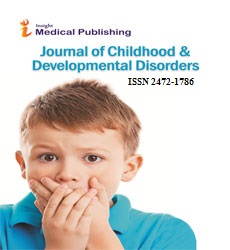Abstract
Low Levels of Attentional Interference have Similar Effects on Static Balance Control of Typically Developing Children and Those with Symptoms of Developmental Coordination Disorder (DCD)
Conceptually, attentional interference should affect balance of typically developing children and even more so those with Developmental Coordination Disorder (DCD). However, due to equivocal findings and limited methodologies this issue remains unclear. Thus, the purpose of this study was to examine the effects of cognitive task on static balance control in typically developing children and those with symptoms of DCD by using traditional and non-traditional measures of postural sway. Ten typically developing children and ten with symptoms of DCD, between 8 and 10 y of age, were recruited. A dual-task methodology was implemented involving quiet standing as a motor task and a numeric classification as an attentional task. Mean and intra-individual variability for three traditional (Ao, Ap sway, Lat) and nontraditional measures of sway (fdis, fmode, Pp) were derived from 10 trials performed with and without attentional interference. The results showed no interaction effects, and aside from area of sway, the differences between the groups or attentional conditions were marginal. In terms of non-traditional measures, the impact of interference was evident from two out of three measures (fdis, fmode), but the emerging values were still within what would be considered as adult-like performance. Collectively, the expected differences between the groups did not emerge, and like-wise the impact of attentional interference was measure-specific as majority of analyses failed to reveal any reliable effects. The emerging small effect sizes further confirmed that the differences between the group means were marginal. However, due to the characteristics of sample these inferences should be treated with caution as they may not generalize to all children with this diagnosis (e.g., ADHD and DCD).
Author(s):
Eryk P Przysucha, Jodi Trap and Carlos Zerpa
Abstract | Full-Text | PDF
Share this

Google scholar citation report
Citations : 504
Journal of Childhood & Developmental Disorders received 504 citations as per google scholar report
Abstracted/Indexed in
- Google Scholar
- China National Knowledge Infrastructure (CNKI)
- Directory of Research Journal Indexing (DRJI)
- WorldCat
- Publons
- Geneva Foundation for Medical Education and Research
- Secret Search Engine Labs
- Euro Pub
Open Access Journals
- Aquaculture & Veterinary Science
- Chemistry & Chemical Sciences
- Clinical Sciences
- Engineering
- General Science
- Genetics & Molecular Biology
- Health Care & Nursing
- Immunology & Microbiology
- Materials Science
- Mathematics & Physics
- Medical Sciences
- Neurology & Psychiatry
- Oncology & Cancer Science
- Pharmaceutical Sciences

